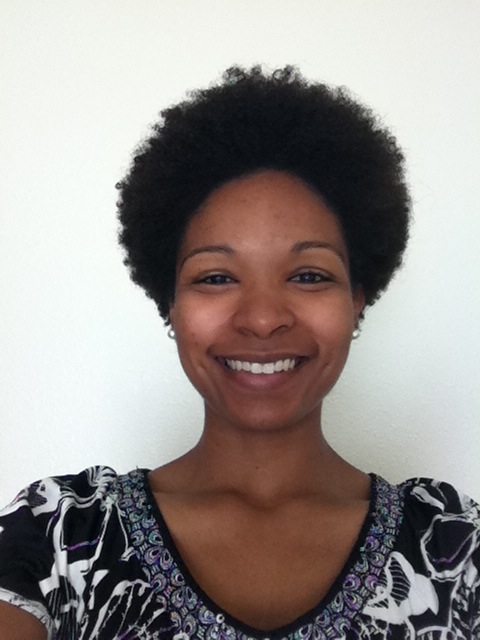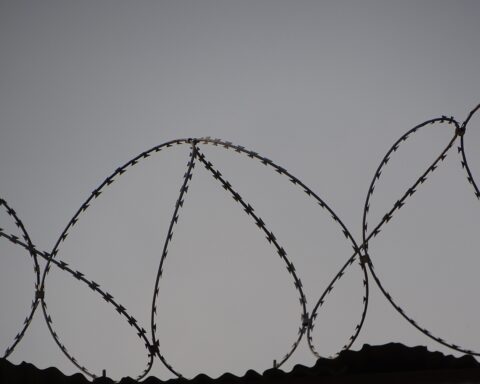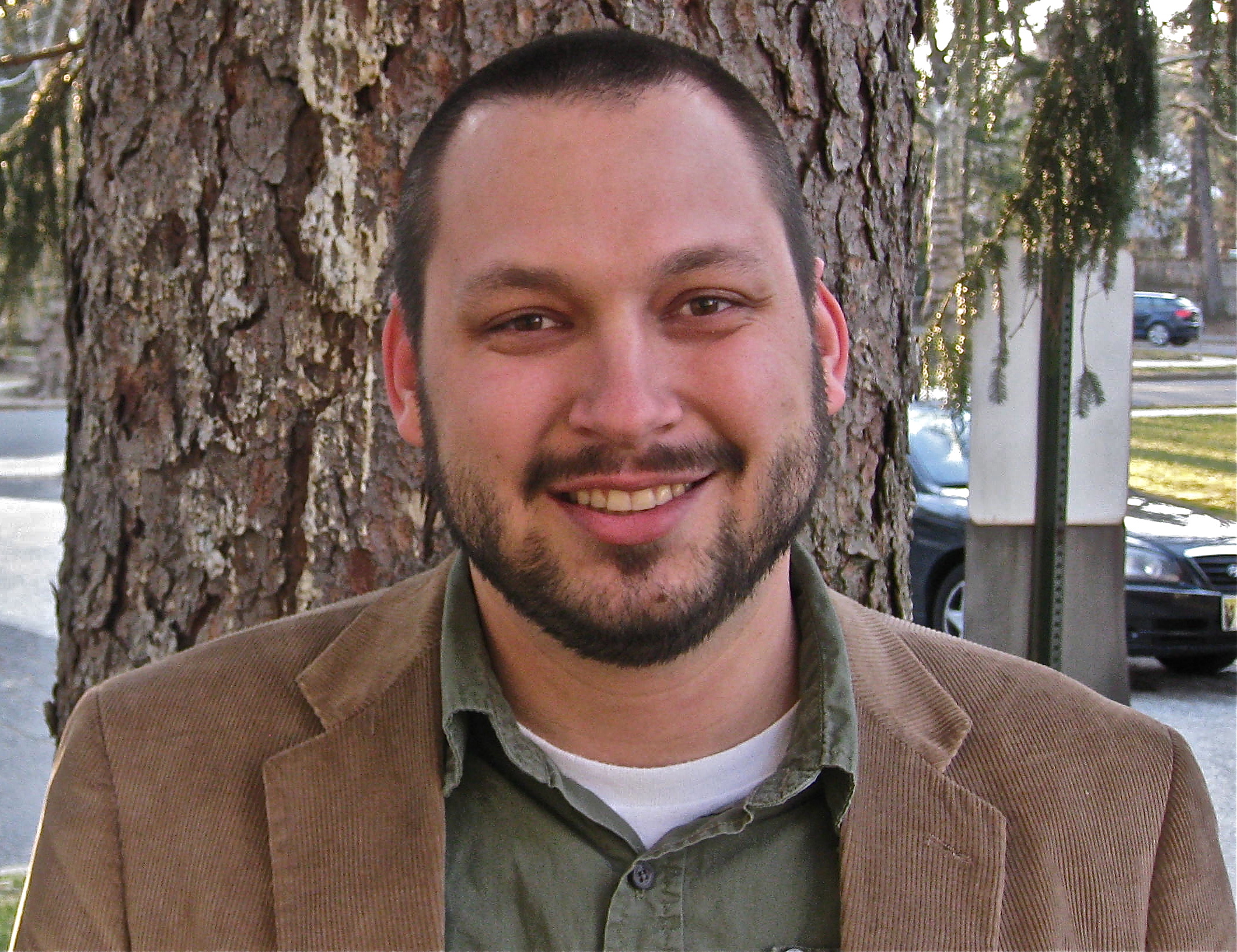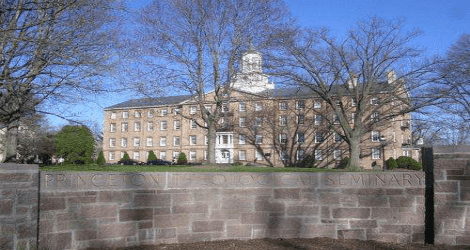Interdenominational Theological Center
Elyse Ambrose examines the strong history of commitment to justice that the Interdenominational Theological Center (ITC) has demonstrated and how that same enthusiasm exists in the ITC community today. She outlines the perspectives and justice concerns of students and faculty. Academic courses that support the cause of justice are shared along with stories of students and staff working together to do justice, not only in the community, but also among one another. While these stories exist and provide direction for the future, there remains opportunity for the ITC to organize and continue to affect change in the legacy of its alumni and in the name of justice. By Elyse Ambrose View and print as PDF.
View and print as PDF.

The Interdenominational Theological Center. It is the school of Martin Luther King Sr. It is the school of sit-ins, womanist theologies, and HIV/AIDS advocacy and ministry in the Atlanta area. It is where students, staff, and faculty organized to try to stop the execution of Troy Davis and sought justice for Trayvon Martin. ITC is where theology meets action, where injustice is more than an idea, more than a mission trip; it is a living, palpable reality, experienced daily by students. This is where I study to be a minister, an advocate, and an educator.
The ITC is a consortium of six denominational seminaries: Gammon Theological Seminary of the United Methodist Church; the Baptist School of Theology; Phillips School of Theology of the Christian Methodist Episcopal Church; Turner Theological Seminary of the African Methodist Episcopal Church; Charles H. Mason Theological Seminary of the Church of God in Christ; Johnson C. Smith Theological Seminary of the Presbyterian Church (U.S.A.) and the Harry V. Richardson Ecumenical Fellowship, which includes students of various faith traditions from non-denominational to Lutheran. By gathering students and faculty with diverse faith-perspectives, the school fosters opportunities for growth and reflection as we celebrate our differences and collaborate in unity. Chartered in 1958, during the Civil Rights Era, the ITC has a history of civic engagement and a vital place in the struggle for the rights of humanity. For example, a yearbook from 1961 features notable persons, such as Martin Luther King Sr. and Benjamin E. Mays, as well as a photograph of the ITC’s students organizing for a sit-in demonstration. Indeed, a commitment to justice is in the very foundations of these seminaries. Today, one finds that the same zeal alights upon the hearts and minds of persons at the ITC, students and faculty alike.
___________________________________________
Juanita Sheppard, of the Baptist School of Theology, remarks that the institution’s defense of Troy Anthony Davis ignited a “revival” of commitment to issues of social justice, causing “a greater sense of compassion for humanity and hunger for justice.”
___________________________________________
A student at the Interdenominational Theological Center has ample opportunity to engage issues of justice, in theory and practice, as part of the curriculum, which offers students needed support for their justice ministries. “Ministry in Context,” for instance, allows a student to integrate her/his learning into on-site praxis through local organizations, with opportunity for small group reflection and reintegration. Also, a course such as “Martin Luther King, Jr. and Civil Rights” or “Howard Thurman Seminar” allows for historical analysis and 21st century reinterpretation of methodologies forwarded by these servant-leaders. In addition, courses on Womanist Studies allow women and men to engender a more inclusive approach to church and society. “Preaching as Social Commentary” allows students to present news articles on pressing social justice issues and formulate sermons that address them. It is not unfitting to assert that any class, even “Foundations of Christian Education” or “Introduction to New Testament,” inherently supports justice ministries as the professors offer the opportunity to engage the material, and necessarily the Bible, from the perspective of the marginalized. These courses and others have at their core the objective found in the ITC mission statement: the ITC aims to be an institution which “educates and nurtures women and men who commit to and practice a liberating and transforming spirituality; academic discipline; religious, gender and cultural diversity; and justice and peace.”1
Opportunities to engage the justice issues that are of deepest concern to students and staff take place not only in the classroom, but also on the ground in the state of Georgia. Last year, the students and faculty of the ITC showed firsthand their commitment to affecting justice as it relates to issues surrounding poverty. As Dr. Johnny Hill, the Special Martin Luther King Jr. Scholar in Residence remarked, “Poverty, which deeply impacts our campus life, is directly connected to the larger public and associated with education, the prison system, housing, unemployment, and a host of other systemic issues.”
After the conviction of Troy Anthony Davis, for which he received the death penalty in Jackson, Georgia in September 2011 (despite evidence of racist and classist prejudice, not to mention the complete lack of forensic evidence and the recantation of seven of the nine original witnesses, citing police coercion), students and faculty stood, marched, and spoke side-by-side in solidarity to do justice. Juanita Sheppard, of the Baptist School of Theology, remarks that the institution’s involvement in this effort ignited a “revival” of commitment to issues of social justice, causing “a greater sense of compassion for humanity and hunger for justice.”
The students of Johnson C. Smith Theological Seminary spearhead the on-campus efforts to address the problem of HIV/AIDS in the Atlanta community, encouraging similar actions in students’ respective churches. Likewise, Gammon Theological Seminary has recently founded the Gammon Center for the Study of Race and Religion, aiding seminarians and others to seek justice through challenging racism. Dr. Jacquelyn Grant, a leading first-generation Womanist scholar and professor at the ITC, seconds the notion of the importance of confronting racist ideas and “negative color symbolism [that says] ‘Black is evil,’” which she affirms also has classist and sexist reverberations. One socially active student on the ITC’s campus, Tessa Thompson, comments that her justice concerns lie within her denomination and laments the privilege that is attributed to some because of race, social standing and/or gender. Eugene Allen Minson, III, President of the Turner Theological Seminary Student Fellowship, affirms the need to address women’s issues, especially the false notion of a female’s “status of inferiority.” He also voices the need for “justice for the unborn, the unfairly jailed, and those communities that are victim to drug wars [and] crime.” The students and staff of the ITC are engaged on many levels to combat oppression in its various forms that are a “threat to justice everywhere.”2
___________________________________________
ITC is where theology meets action, where injustice is more than an idea, more than a mission trip; it is a living, palpable reality, experienced daily by students.
___________________________________________
At ITC, justice is not merely an esoteric concept to be theologized or a problem to be engaged from a distance. Justice starts at home. Last year, the leaders of the Student Christian League learned that on their own campus, upon their own students, the economy was taking its toll. With the help of student volunteers and by establishing connections with local churches, the Student Christian League’s Food Pantry has been able to feed over 750 students of the Atlanta University Center, which includes the ITC, Spelman College, Morris Brown College, Morehouse College, and Clark Atlanta University. President of the Johnson C. Smith Student Fellowship, Eric Thomas, remarks how important it is to realize that, when seeking a neighbor whom we may love as Christ commanded His disciples, we needn’t search very far, “taking for granted that the ‘least of these’ are among our own classmates.” The Student Christian League has seen donations not only from local churches, but from the students of the seminaries and the ITC faculty and staff, including President Ronald Peters. Recently, students and faculty have also become involved with rallying for immigrants’ rights and marching from Selma to Montgomery, Alabama, for voting rights. Even as I write, the ITC is preparing for the “Trayvon Martin Dialogue and Organizing Meeting” to come up with practical ways to be proactive in addressing injustices and to stand in solidarity with the unarmed victim of a heinous crime.
There remains “a pressing need for ongoing, continued engagement regarding social justice work and the need to have sustainable organization to help students in those efforts,” observes Dr. Hill. Students and staff are concerned about poverty and HIV/AIDS, sexism and racial inequality, as well as inequality within their denominational structure. Yet, for many students at the ITC, the work that student organizations have engaged in is their first and/or only exposure to affecting communities in the name of social justice. Many students have the passion, but are not sure where to begin. For some, the issues that afflict our society seem overwhelming, which sometimes leads to inactivity or apathy. Also, people’s deep engagement with justice in their home churches, often outside of Atlanta, can limit the level of participation and civic engagement with the Atlanta and ITC community. But the Atlanta community has not been forgotten.
In the aforementioned yearbook, nearly 50 years ago, the students of the ITC inserted a quote that has the power to continue to affect generations that will pass through the same hallowed halls:
In serving this “present age,” not only do we, as ministers, pray for and preach about human dignity and universal brotherhood, but we take an active part in efforts that are directed toward making these ideals a reality.3
Now, in 2012, students and faculty, administration and staff of the Interdenominational Theological Center continue in the cause for justice, seeking to make real the hopes for justice that we all share as those called to “do justice, and to love kindness, and to walk humbly with [our] God (Micah 6:8).” Though there is more organizing and more inspiring to do, the overall climate for social justice on the ITC’s campus remains hopeful. As one student leader, Natasha Patterson affirmed, “There will continue to be strides made […] both individually and collectively in addressing the current needs of others by ultimately moving from silence to action… transition[ing] from being concerned with social issues to being actively involved in pursuing social justice for others.” One can expect that the Interdenominational Theological Center will continue to embody those actions that are necessary to challenge injustice, speak truth to power, and transform communities to the glory of God.
________________________
Notes
[1] The Interdenominational Theological Center, “ITC Mission Statement,” http://www.itc.edu/pages/mission_vision.asp (accessed March 17, 2012).
[2] This is a brief excerpt from “Letter from Birmingham Jail” by Rev. Dr. Martin Luther King, Jr. The quote in its entirety and in context states, “Injustice anywhere is a threat to justice everywhere. We are caught in an inescapable network of mutuality, tied in a single garment of destiny. Whatever affects one directly, affects all indirectly.” Clayborne Carson, ed., “Letter from Birmingham Jail,” The Autobiography of Martin Luther King, Jr. (New York: Grand Central Publishing, 1998), 189.
[3] ——, The Center Official Yearbook (Atlanta: Hewett Publishers, Inc., 1961), 63.
________________________
Elyse Ambrose is a Social Justice Advocate and student at Gammon Theological Seminary. She is pursuing a Master of Divinity, with a concentration in New Testament Studies and currently serves as Middler Class President of the Interdenominational Theological Center in Atlanta, Georgia.





Unbound Social